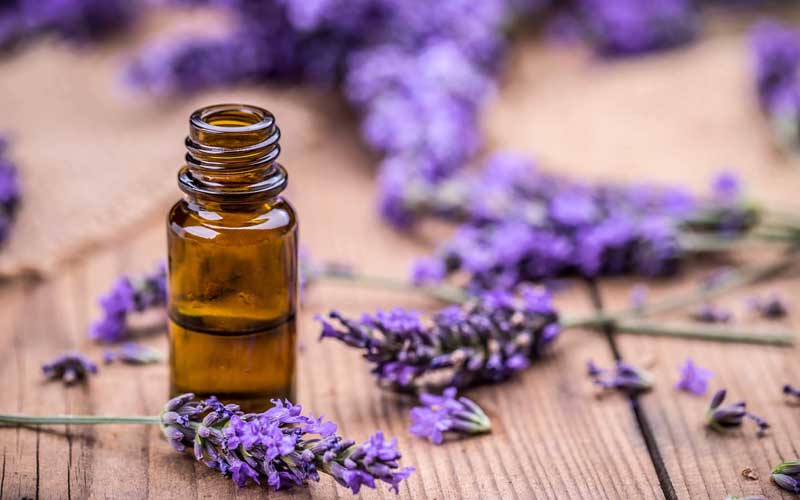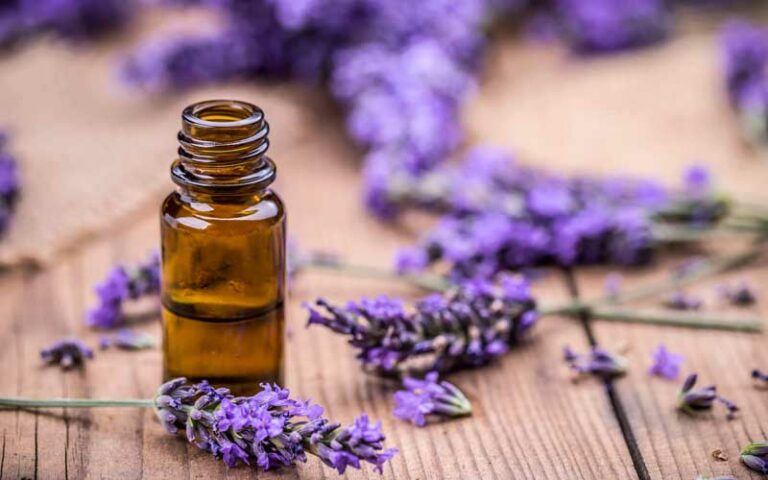There is nothing worse than not getting enough sleep. So it is time to try a new tactic if you find yourself tossing and turning for hours every night. That’s where lavender comes in. It has a comforting scent and violet blooms that can be found in candles, herbal teas, and even baked goods, but there is more to this delicate plant than meets the eye. There are a number of health benefits to lavender, from the relief of pain and anxiety to insomnia. There are several ways in which lavender can be incorporated into your daily routine for a better night’s sleep. And today we are going to discuss them with you.
What are the benefits of using lavender oil?

Getting to the root of your sleeping problems can take a long time. However, there is a quick fix for getting a better night’s sleep, and that’s lavender. This evergreen plant has many benefits that go beyond its appearance.
Lavender oil is quite effective and affordable. It’s also a natural product that doesn’t come with nasty side effects such as grogginess, an upset stomach or a headache the next morning. That’s not all! A lot of research has shown that lavender oil is an effective way to treat stress and anxiety.
A strong medication can be addictive and come with a number of side effects, which is why using lavender oil is a much better way to fall into a relaxing sleep. The essential oil is created during a steaming process, and it can even help combat infections and relieve pain.
The main perk of this flower is its ability to calm the mind, which is why it is often a key ingredient in nighttime tea, pillow mists and beauty products.
How can you use lavender oil to help you sleep?

What’s great about this plant is that it comes in a wide variety of forms, which guarantees at least one thing will suit you and your needs. For example, one of the most common ways to use lavender is by making essential oil. Here are some of the ways you can use set oil:
Use it as an essential oil in a diffuser
Today many people use aroma diffusers, and lavender is one of the most popular options for aromatherapy due to its many benefits. You can get a plug-in diffuser, or if you are on a tighter budget, even a small tea light lavender candle will get the job done.
We recommend you diffuse this scent in your bedroom approximately one hour before you plan to go to bed. That’s because this way, you should be able to drift into a relaxing slumber with ease.
Pour a couple of drops onto your pillow
For a long time now, people have been pouring a few drops of oil onto their pillowcases to help them to sleep better at night. However, if you don’t want to risk staining your nice silk pillowcase, you can always use a hanky or facecloth placed over your favourite pillow.
Some brands offer lavender-infused options and pillows with fragrant dried lavender to help you as well. But, generally speaking, placing your head near this scent might help enormously.
Use it on your face
There are many ways that you can use this oil, but one of the oldest and most effective ways is to apply it to your face. What we mean is placing a few drops where you can smell them, like your temple or forehead (a.k.a. keep it closer to your nose). Since lavender is a natural product, it shouldn’t cause any skin irritation.
Why does lavender improve sleep quality?

Why does lavender improve sleep quality?
If you’ve slept well during the night, your day will be more energetic and productive. But if you don’t know how to do so, lavender could be just the ingredient to get you there. The essential oils from this plant contain linalool and linalyl acetate, which have soothing and pain-relieving effects by interacting with neurotransmitters in your brain.
Said simply, the compounds help quieten brain activity and calm your mind, which creates a more peaceful state for you to get some rest.
One of the ways in which lavender can be incorporated into your routine is through inhalation, which is said to soothe the mind for sleep. According to a study from Wesleyan University in 2005, men and women who inhaled lavender oil one night and distilled water the next improved their overall sleep quality and were able to fall asleep quicker and easier.
When the sleep cycles were analysed, it was found that lavender relaxes the muscles and slows down the heartbeat, stimulating a slow-wave sleep. It was reported by the subjects that they felt more energetic the following day.
Are there any possible side effects of using lavender?
Lavender is a 100% natural product, meaning it shouldn’t have any downsides. However, for some individuals, it can cause skin irritation or an allergic reaction. You might be allergic to it, or your body simply doesn’t handle it well.
If you’re experiencing nausea, vomiting, or a headache after using lavender, we strongly advise you to discontinue use immediately because it may have toxic effects on your body. If you’re someone that has issues with using this plant, we highly recommend you don’t ingest it unless you’re under the supervision of a medical professional.
Bottom line
If you are tired of trying sleep aids that don’t work, or you’re just plain tired because of the countless sleepless nights, then you should give the lavender lifestyle a try. It can improve the quality of your sleep, help you relax and even reduce stress and anxiety.
After long research, many reviews and studies, we created a thorough guide about lavender and sleep and how does it work. However, please keep in mind that we are non-professionals in the medical field, and these are only recommendations.
As always, if any questions regarding the subject were left unanswered, we would gladly answer them in the comments below.

